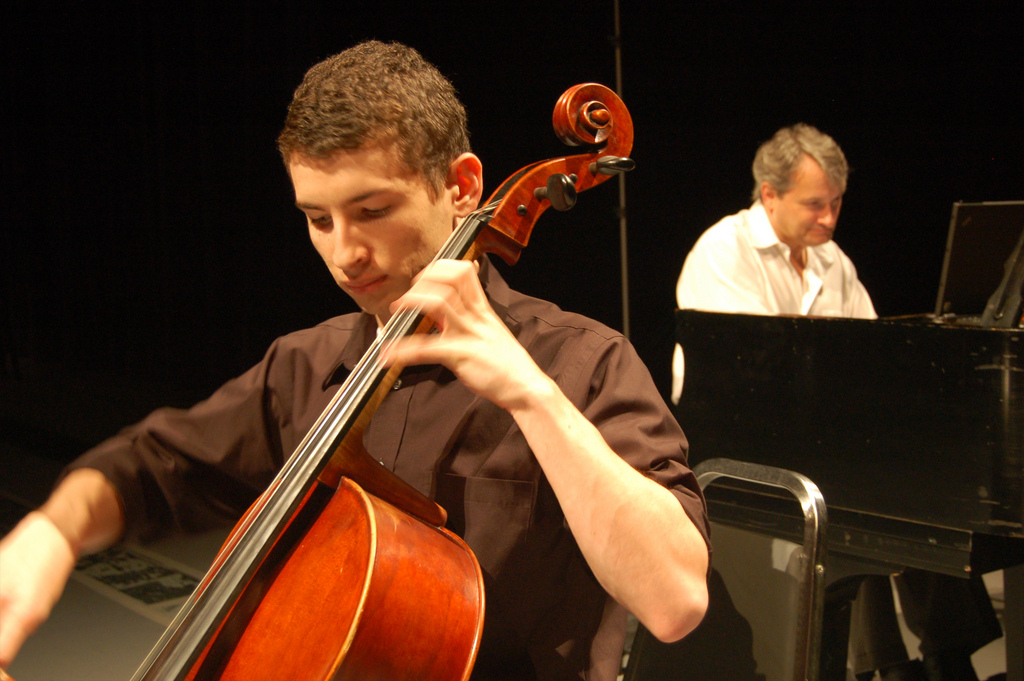Nikita Annenkov on Why Musicians Should be Flexible
I think it is very important for musicians these days to be flexible and able to do many types of jobs in the music world aside from playing an instrument.
Cellist Nikita Annenkov (Show 238) had a really unique experience this past summer at the Chamber Music Connection’s (CMC) Summer Music Festival – he was a teacher, a mentor, and an arts administrator. Nikita reflects on his experience at the festival below…
I have been with Chamber Music Connection (CMC) since 2007, which was when I moved to Ohio from Uzbekistan. I was a recipient of the Chamber Music Columbus Scholarship and was also a part of the CMC Fellowship Program. My chamber music experience comes mostly from CMC – I grew to love the program as it guided me on the path to be a well-rounded musician over the years. I attended CMC’s 2012 Summer Festival as a returning alumnus, where I assisted with chamber ensemble coachings and helped advertise CMC to the community. I think it is very important for musicians these days to be flexible and able to do many types of jobs in the music world aside from playing an instrument. It is well known that times are tough for young musicians, so being a well-rounded musician with many skills, including administrative, will provide more opportunities to succeed in the field of music.
This summer I experienced what it can be like in the “real professional world”. As part of promoting CMC, for example, I had to contact local businesses and find advertising opportunities. At first I was very nervous, having not had much experience talking to business people – I was officially representing CMC and had to be professional. After the first few places I visited, it started to become much easier – by the end of an hour of meetings, I had talked to a number of business owners who were happy to host a chamber music group’s performance during the festival week. One business even offered to host a small fundraiser and donate a portion of the profits to support CMC. I learned that it is as important to be able to represent yourself and make a name for yourself as knowing how to play your instrument; talent and skills will not mean much when nobody knows about you. Being engaged with musicians but not actually performing made me think of other career choices I might like if it doesn’t work out with cello performance. I have thought about other career choices and I found that I would enjoy other subjects, such as teaching theory or becoming a music critic. When the festival started, I would take a group to downtown Worthington everyday at lunch to play in front of a local business. Of course, since the program was mostly made up of younger musicians, Graeter’s Ice Cream became the favorite place to play. This year CMC celebrated its 20th anniversary, but there were still people from the community who had never heard of the program – they quickly came to enjoy the “Classical Music – Ice Cream Afternoon Special”. I also got a chance to coach a chamber music orchestra, which was very interesting. I haven’t had much experience coaching young musicians before, so I had to adjust and find ways to make the rehearsal interesting and productive.
The whole experience of being an alum, as well as being a part of CMC, but not as a performer, definitely made me feel more professional and responsible. My task of promoting CMC may not have been a difficult one, but it was very rewarding. I had to make decisions, take charge, and be on time – all tasks worth having as a performer. I am very happy that I had an opportunity to challenge myself this way and have such a productive summer.




